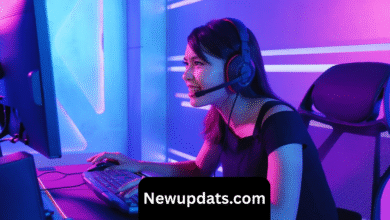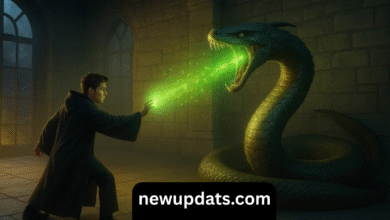Esports News Dualmedia has exploded in popularity over the last decade. What started as small LAN parties and grassroots tournaments has grown into a billion-dollar industry with packed arenas, huge sponsorships, and global audiences. But alongside this meteoric rise has been an equally fast-growing need for high-quality, real-time coverage — and that’s where DualMedia steps in. If you’re someone who keeps an eye on Esports News Dualmedia, chances are you’ve heard the name. But what exactly is DualMedia, and why is it becoming such a big deal in the world of competitive gaming?
Let’s dive into how DualMedia is transforming the Esports News Dualmedia scene, and why it’s worth keeping on your radar — whether you’re a fan, a player, or someone just curious about the future of digital entertainment.
What Is DualMedia and Why Should Esports Fans Care?
DualMedia isn’t just another content platform; it’s becoming the go-to source for Esports News Dualmedia, tournament coverage, and behind-the-scenes insights. With so many events happening across games like League of Legends, Valorant, CS2, and Dota 2, it’s easy to get lost in the noise. DualMedia’s strength lies in curating and delivering the most relevant stories — fast.
Unlike traditional gaming news outlets, DualMedia combines real-time reporting with in-depth analysis. That means you’re not just getting the “who won and who lost,” but also strategic breakdowns, player reactions, and meta shifts. It’s this layered approach that makes them stand out. Esports is as much about the why as it is about the what, and DualMedia knows that.
Another big reason to care? DualMedia is platform-agnostic. Whether you’re scrolling on Twitter/X, watching reels on Instagram, or diving into long-reads on their website, the content is everywhere — and it’s all optimized for the platform it’s on. That’s not just smart marketing, it’s understanding how esports fans actually consume media today.
How DualMedia Is Reshaping the Esports News Dualmedia Landscape
Before DualMedia, keeping up with esports meant juggling Reddit threads, YouTube channels, Twitch streams, and a dozen different Twitter accounts. It was chaotic. Now, things are different. DualMedia offers a centralized, curated experience that actually respects your time — and that’s a breath of fresh air.
One of the biggest changes Esports News Dualmedia they’ve brought to the table is the idea of “story-first” coverage. Rather than just dumping match stats or reposting highlights, DualMedia digs into narratives. Think of it like the ESPN of esports. They’ll explore rivalries, player drama, team transformations, and even the mental toll of competing at the highest level. These are the stories that keep fans coming back — and they’re what help legitimize esports as more than just “video games.”
The integration of short-form and long-form content is another game-changer. Need a quick recap of the latest tournament? DualMedia’s got a 60-second video. Want an in-depth editorial about how patch updates are killing the current meta? They’ve got that too. This flexibility makes them incredibly accessible, whether you’re a casual viewer or a hardcore analyst.
Why Esports Coverage Needed a DualMedia-Level Upgrade Esports News Dualmedia
Let’s be honest — esports journalism hasn’t always been great. Many outlets were either too slow to adapt or treated esports like an afterthought. That meant outdated info, Esports News Dualmedia low-effort reporting, and a serious lack of personality. DualMedia didn’t just fill a gap; it raised the bar entirely.
One of the biggest problems in older esports coverage was the disconnect between reporters and the actual gaming communities. Too many journalists wrote from the outside looking in. DualMedia flipped that. Their team consists of former players, analysts, streamers, and long-time community members. They get it — and that authenticity shines through in every piece of content they publish.
Then there’s the speed factor. In esports, things change fast. A player retires, a new patch drops, a scandal breaks — and suddenly the entire landscape shifts. DualMedia understands the pace of the industry and delivers updates in real time. No more waiting 48 hours to read about something you already saw on a stream. With DualMedia, you get it as it happens — with added context you didn’t know you needed.
The Future of Esports News Dualmedia and DualMedia’s Role in It
As esports continues to grow, so will the need for smart, agile, and authentic media coverage. DualMedia seems to have found the formula, but they’re not stopping here. In fact, if anything, they’re just getting started.
Looking ahead, we’re likely to see DualMedia expand its coverage beyond just the top-tier titles. Games like Rocket League, Apex Legends, and even fighting games like Street Fighter and Tekken are developing strong competitive scenes — and DualMedia is well-positioned to bring those stories to the forefront. This inclusive approach could further cement their place as a leader in the esports media space.
There’s also the potential for more interactive content. Think live Q&As, viewer-submitted segments, and community polls that actually influence editorial choices. That level of involvement isn’t just good engagement; it’s the future of digital media. DualMedia seems to understand that fans don’t just want to read the news — they want to be part of it.
Finally, with the rise of AI tools and content automation, Esports News Dualmedia DualMedia’s editorial voice becomes even more important. In a sea of generic content and clickbait, the value of well-written, human-driven journalism can’t be overstated. And for esports fans looking for quality coverage? That’s exactly what DualMedia delivers.
Final Thoughts: Why “Esports News Dualmedia DualMedia” Isn’t Just a Trend
If you’re Googling “Esports News Dualmedia dualmedia,” you’re not alone — and you’re definitely on the right track. As the esports industry matures, so does the need for trustworthy, timely, and genuinely interesting news coverage. DualMedia doesn’t just report on the scene; they help shape the conversation around it.
For players, it’s a platform that gives them a voice beyond the server. For fans, it’s a hub that keeps them informed and engaged. For the industry at large, it’s a sign that esports journalism has entered a new era — one that takes itself seriously without losing the soul of gaming culture.
So whether you’re checking match results on your lunch break, diving into strategy breakdowns on the weekend, or just watching memes about your favorite pro team, remember this: Esports News Dualmedia is evolving. And DualMedia is leading the charge.




